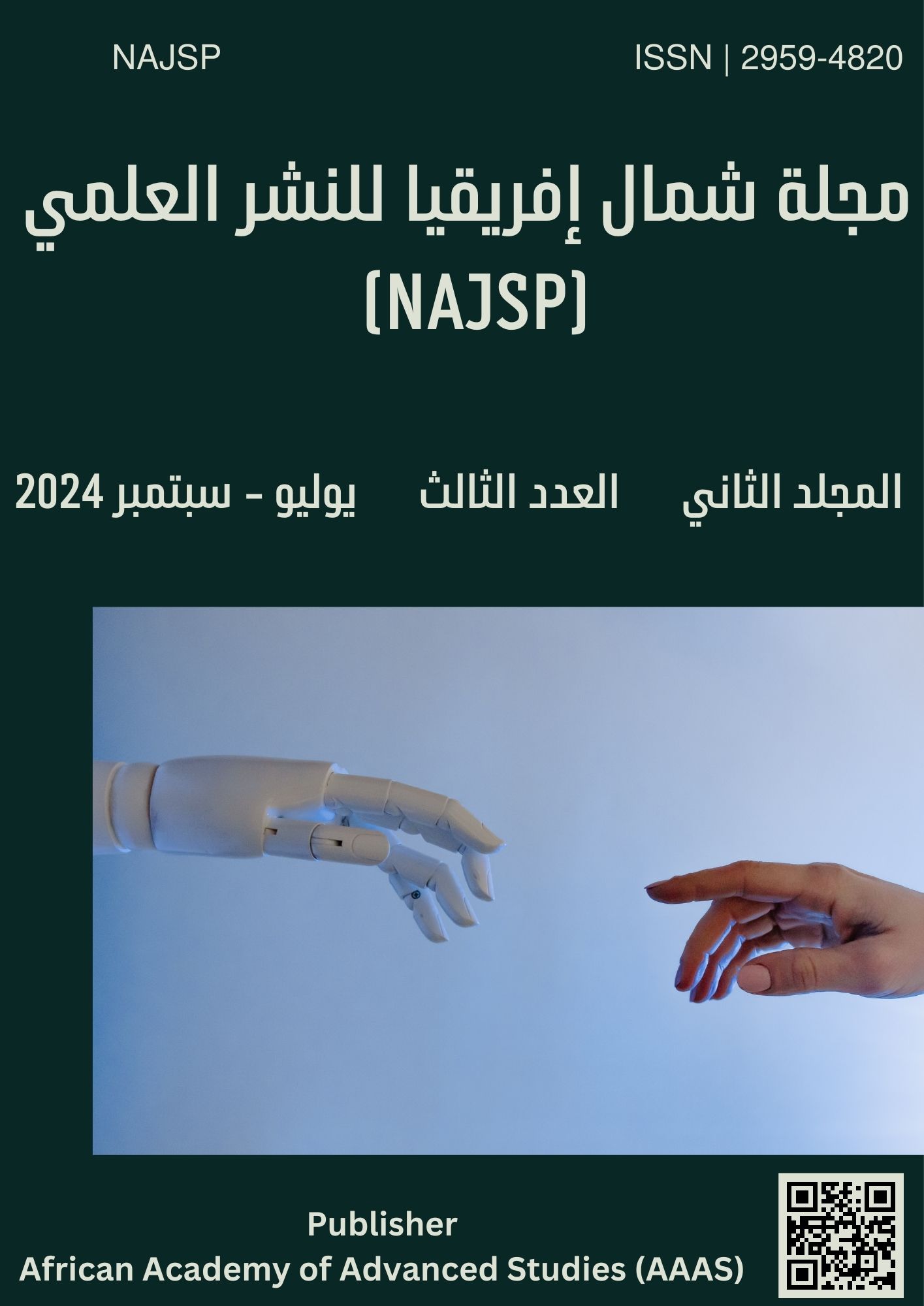The Effect of Using Scratched Stewpots on Food Contamination with Heavy Metals
DOI:
https://doi.org/10.65414/najsp.v2i3.202الكلمات المفتاحية:
Stewpots، Heavy Metals، Leaching، Atomic Absorptionالملخص
Heavy metals can be released from cooking stewpots into food, causing food contamination and posing a risk to human health. This research study investigated the release of heavy metals into food from stewpot cookers used in Gharyan, Libya. As well as, investigating the effect of scratches, acidic food, and storage on the concentrations of those metals. Eight new and used cooking stewpots (with scratches) made of: (Tefal, stainless steel, copper and aluminum) were collected, and then fresh tomato juice was cooked in these stewpots and left in the refrigerator for six days, the samples were digested and analyzed by atomic absorption spectrophotometer (AAS) to measure the concentration of the heavy metals: (cadmium, lead, iron, copper and zinc). Results showed that cadmium and lead concentrations were less than the detection limit of the AAS instrument, except for one sample (old Tefal stewpot with scratches), in which the lead concentration was (0.046ppm). The concentration of iron, copper and zinc in the samples was less than the maximum limit allowed by WHO/FAO; except for one sample in which the iron concentration exceeded that value (old copper pot with scratches) and its value was (2.892ppm). The results of the descriptive statistical analysis showed that the average concentration of iron (0.493 ppm) was higher than that of zinc and copper (0.054 ppm), (0.016 ppm), respectively. In addition, the rate of leakage of those elements from old (scratched) cookware was higher than that from the new ones made from the same material, and the concentration of these elements increases significantly when these stewpots contain scratches, since that increases the rate of leakage of those metals, especially in acidic food such as tomatoes.
التنزيلات
منشور
كيفية الاقتباس
إصدار
القسم
الرخصة
الحقوق الفكرية (c) 2024 Mofida M. Alfaid, Huda A. Husain, Raja A. Alarabi, Mariam M. Alwaer, Abdounasser Albasher Omar

هذا العمل مرخص بموجب Creative Commons Attribution 4.0 International License.







